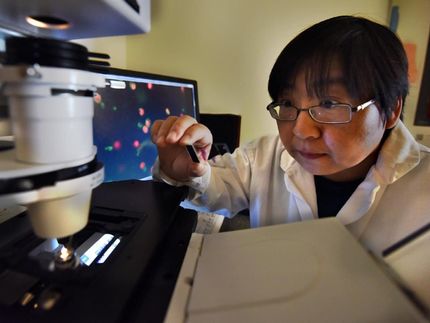Affitech Gains Exclusive Worldwide Rights to Develop and Commercialize New Anti-VEGF Antibodies
Advertisement
Peregrine Pharmaceuticals, Inc. and Affitech A/S announced that they have entered into a licensing agreement for antibody therapeutic rights under Peregrine's preclinical anti-VEGF (Vascular Endothelial Growth Factor) antibody program. Under the terms of the agreement, Affitech will license exclusive worldwide rights to develop and commercialize products under Peregrine's selective anti-VEGF intellectual property portfolio, including the fully human antibody r84, which was discovered by Affitech and jointly developed by the companies under an ongoing collaboration. Under the license agreement, Affitech will be responsible for future preclinical and clinical development and potential product commercialization. Peregrine will receive an upfront payment, research fees and future milestone payments potentially totaling in the double-digit millions (US$). Peregrine will also receive royalties on any future sales and a share of sublicensing revenues. Additional financial terms were not disclosed.
Anti-VEGF therapy has become a standard part of treatments for many different types of solid tumors. According to projections of some market analysts, sales of anti-VEGF antibodies are expected to exceed $10 billion by 2015. The fully human and selective anti-VEGF monoclonal antibody, r84, which is the most advanced candidate in Peregrine's anti-VEGF antibody program, targets the cancer-promoting growth factor VEGF. Data presented at IBC's 5th Annual International Anti-Angiogenesis Conference in 2007 showed that r84 was as effective as Avastin® (bevacizumab) in inhibiting tumor growth in a number of models of human cancers, including a mouse model of human breast cancer. r84 is distinctive because it selectively blocks VEGF from binding to VEGF receptor 2 (VEGFR2), while non-selective agents such as Avastin block binding to both VEGFR2 and VEGF receptor 1 (VEGFR1). Selective anti-VEGF agents such as r84 may have safety and efficacy advantages over non-selective approaches. In addition, the fully human nature of the r84 antibody minimizes the risk of an immune response against the drug itself, thereby lessening the potential for immunological side effects and neutralization of the treatment effect. As a fully human antibody, r84 may also have better pharmacokinetic properties in patients.
Other news from the department research and development
Most read news
More news from our other portals
See the theme worlds for related content
Topic world Antibodies
Antibodies are specialized molecules of our immune system that can specifically recognize and neutralize pathogens or foreign substances. Antibody research in biotech and pharma has recognized this natural defense potential and is working intensively to make it therapeutically useful. From monoclonal antibodies used against cancer or autoimmune diseases to antibody-drug conjugates that specifically transport drugs to disease cells - the possibilities are enormous

Topic world Antibodies
Antibodies are specialized molecules of our immune system that can specifically recognize and neutralize pathogens or foreign substances. Antibody research in biotech and pharma has recognized this natural defense potential and is working intensively to make it therapeutically useful. From monoclonal antibodies used against cancer or autoimmune diseases to antibody-drug conjugates that specifically transport drugs to disease cells - the possibilities are enormous




















































